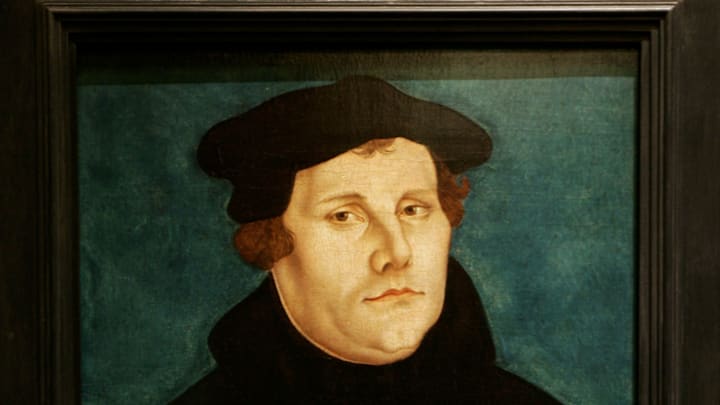The Impact of the Printing Press on the Reformation

Prior to the advent of the printing press, the production of books was a laborious and expensive process. Manuscripts were painstakingly copied by hand, often by monks in monasteries, which limited the availability and accessibility of written works. The printing press revolutionized this process by allowing for the mass production of books and other printed materials. Gutenberg's press, with its movable type, made it possible to produce multiple copies of a text quickly and efficiently, dramatically reducing the cost and increasing the distribution of books.
One of the earliest and most influential uses of the printing press was the production of the Gutenberg Bible in the 1450s. This marked the beginning of the spread of printed religious texts, which would become a key factor in the Reformation. The ability to produce and distribute Bibles in large quantities allowed for greater access to the scriptures, enabling laypeople to read and interpret the Bible for themselves. This democratization of religious knowledge challenged the Catholic Church's monopoly on religious authority and interpretation.
The Reformation itself was initiated by Martin Luther, a German monk and theologian, who famously nailed his Ninety-Five Theses to the door of the Castle Church in Wittenberg in 1517. Luther's theses criticized various practices of the Catholic Church, including the sale of indulgences, and called for a return to what he saw as the true teachings of the Bible. The printing press played a crucial role in spreading Luther's ideas. Within weeks, copies of the Ninety-Five Theses were printed and distributed throughout Germany and beyond, reaching a wide audience and sparking widespread debate.
The dissemination of Reformation ideas was further facilitated by the production of pamphlets, sermons, and other writings by reformers such as John Calvin, Huldrych Zwingli, and William Tyndale. These printed materials were accessible and affordable, allowing ordinary people to engage with and support the Reformation movement. The ability to reach a mass audience through print helped to galvanize public opinion and build a broad base of support for the reformers' ideas.
The printing press also contributed to the rise of literacy and education, as the increased availability of books made it possible for more people to learn to read. This, in turn, empowered individuals to engage with religious texts and ideas on their own, fostering a spirit of inquiry and critical thinking. The spread of literacy and the availability of printed materials played a key role in the development of a more informed and engaged populace, which was essential to the success of the Reformation.
The impact of the printing press on the Reformation extended beyond the religious sphere. It also had significant cultural, social, and political implications. The spread of Reformation ideas challenged the authority of the Catholic Church and the established social order, leading to religious conflicts and political upheaval. The printing press facilitated the exchange of ideas across borders, contributing to the development of a more interconnected and dynamic intellectual landscape.
In conclusion, the invention of the printing press by Johannes Gutenberg had a transformative impact on the Reformation and the course of European history. By enabling the mass production and dissemination of religious texts and reformist ideas, the printing press played a crucial role in challenging the authority of the Catholic Church, promoting literacy and education, and fostering a more informed and engaged society. The legacy of the printing press and its role in the Reformation continue to be felt today, highlighting the enduring power of the written word in shaping human thought and history.